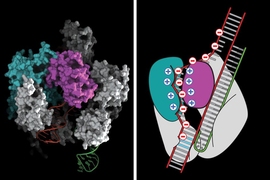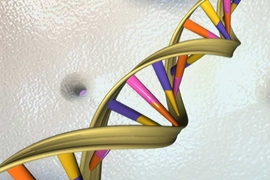Kevin Esvelt, a Harvard University biologist who is merging some of the newest techniques in molecular biology with ecological engineering, will be joining the MIT Media Lab as assistant professor of media arts and sciences in January 2016. He will lead a new Sculpting Evolution research group at the lab.
Esvelt’s research focuses on evolutionary approaches to the engineering of ecosystems ranging from the microbial to the global. His discoveries offer new ways to control vector-borne and parasitic diseases, as well as agricultural pests and environmentally damaging invasive species. Because his work could be used to impact the shared environment, he emphasizes the importance of safeguards, transparency, and community-responsive science.
During his graduate and post-graduate work at Harvard, Esvelt wove many different areas of science into novel approaches to ecological engineering. As a Technology Development Fellow at Harvard’s Wyss Institute, he collaborated closely with researchers in Professor George Church’s laboratory. Most recently, he described how to use the CRISPR gene-editing system to create gene drive elements that could be used to alter the traits of wild populations, and demonstrated safeguards for their use. Previously, working in the laboratory of Professor David Liu, he invented phage-assisted continuous evolution (PACE), a synthetic microbial ecosystem for rapidly evolving biomolecules.
"Having Kevin join the Media Lab is a major coup for us," says Media Lab Director Joi Ito. “He is one of the key researchers working on the CRISPR gene drive, and an important voice in the very difficult conversation around the use of technologies that can permanently alter entire species. Almost more important than the science are the meta questions of who makes these decisions, and how can we forecast the consequences?”
Esvelt received his bachelor’s degrees in biology and chemistry from Harvey Mudd College and a PhD in biochemistry from Harvard University. He is a winner of the Harold M. Weintraub Award, the Hertz Foundation Thesis Prize, and the National Institutes of Health K99.









